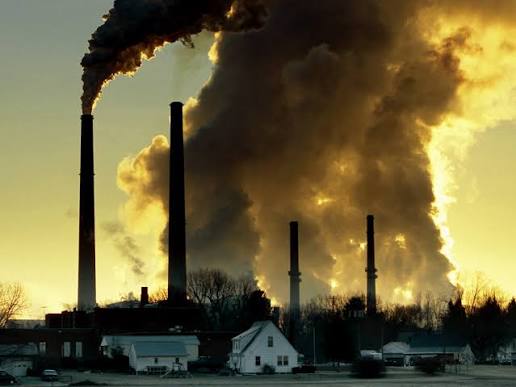
Plane Crash Kills Two in Hong Kong Airport
Oct 20, 2025
by Ekow Benyah Oct 13, 2025

Over 28,000 Ghanaians Die Yearly from Air Pollution — AMA
October 13,2025
One Death Every 19 Minutes as Worsening Sanitation Drives Public Health Crisis
The Director of Public Health at the Accra Metropolitan Assembly (AMA), Florence Kuukyi, has issued a stark warning about the public health emergency facing Ghana's capital, revealing that more than 28,000 people die annually in the country due to air pollution.
Alarming Statistics
According to Ms. Kuukyi, the staggering death toll translates to one person dying every 19 minutes from air pollution-related causes. The revelation comes amid growing concerns about deteriorating sanitation conditions across Accra and their cascading effects on public health and air quality.
Sanitation Crisis Fueling Health Emergency
The AMA Public Health Director warned that increasing levels of filth across the capital are not only driving outbreaks of cholera and other sanitation-related diseases but are also contributing significantly to worsening air quality.
"This is leading to a number of diseases, not just the diarrhea and the typhoid you mentioned. It also has an impact on the air you breathe. Studies have it that in Ghana, over 28,000 people die prematurely due to air pollution. This means that in every 19 minutes, somebody dies due to air pollution," Ms. Kuukyi stated.
Describing the situation as "disheartening," she called for urgent and coordinated action from all stakeholders to address the crisis before it escalates further.
Call for Collective Responsibility
Ms. Kuukyi emphasized that sanitation management must be viewed as a shared responsibility among government, private waste collectors, and residents. She stressed that the current "pollutant pay" system requires those who generate waste to take financial and personal responsibility for its disposal.
"Sanitation in the country is a collective and collaborative effort. Everyone has a role to play when it comes to sanitation issues. In Ghana, we are practicing the 'pollutant pay' system — the persons who generate the waste must pay for it to be disposed of. That is where the issues come in. People generate waste and do not want to take on that responsibility, and they want to push everything on the government," she explained.
Urgent Call to Action
The Public Health Director urged residents to take personal responsibility for managing their waste and to cooperate with the city's sanitation and environmental health authorities to make Accra cleaner and safer.
Broader Implications
The revelation about air pollution deaths highlights the interconnected nature of Ghana's environmental challenges. Poor waste management leads to open burning of refuse, traffic congestion from blocked drains, and the proliferation of disease vectors—all contributing to degraded air quality and respiratory health problems.
Public health experts have long warned that air pollution causes or exacerbates respiratory diseases, cardiovascular conditions, and other serious health issues. The premature death of 28,000 Ghanaians annually represents a significant loss of productive lives and places enormous strain on the healthcare system.
Path Forward
The AMA's warnings underscore the urgent need for comprehensive environmental and public health interventions. These include improved waste collection systems, stronger enforcement of sanitation laws, public education campaigns, and investments in sustainable waste management infrastructure.
As Ghana continues to urbanize rapidly, addressing the sanitation and air quality crisis in Accra and other major cities will be critical to protecting public health and ensuring sustainable development for future generations.

Oct 20, 2025

Oct 28, 2025

Mar 16, 2025

Oct 28, 2025

Oct 13, 2025

Oct 10, 2025

Oct 08, 2025

Sep 12, 2025